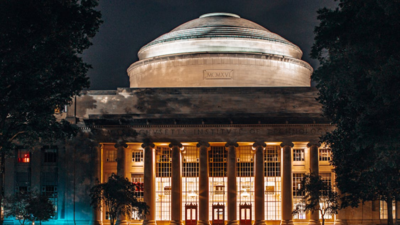Biomedical science stands as a cornerstone of modern healthcare, encompassing disciplines that drive innovations in disease prevention, diagnostics, and treatment. In the United States, pursuing a degree in biomedical sciences opens doors to diverse career paths, including roles in clinical research, biotechnology, pharmaceuticals, and public health. Graduates often find opportunities in academic institutions, research organizations, healthcare facilities, and private industry.While Ivy League institutions are renowned for their prestigious programs, numerous non-Ivy League universities across the U.S. offer exceptional biomedical science education. These institutions provide rigorous curricula, state-of-the-art research facilities, and strong industry connections, making them attractive options for prospective students.
Massachusetts Institute of Technology (MIT)
Ranked 2nd globally with an outstanding overall score of 94.7, MIT is a powerhouse in biological sciences. Although widely known for its engineering and technology programs, MIT’s Department of Biology and related biomedical research centers have established themselves at the forefront of molecular biology, synthetic biology, and biomedical engineering. Its interdisciplinary approach integrates biology with computational and physical sciences, producing graduates well-prepared for research and innovation in biotechnology, drug development, and healthcare technologies.
University of California, Berkeley (UCB)
UCB holds the 8th position worldwide, earning an overall score of 86.5 in biological sciences. Berkeley offers a broad and flexible biomedical science curriculum through its Department of Molecular and Cell Biology, emphasizing genetic research, cell signaling, and systems biology. The university’s strong emphasis on research, coupled with its vibrant biotech ecosystem in the Bay Area, provides students with exceptional opportunities to collaborate on pioneering projects and transition into careers spanning academia, industry, and healthcare sectors.
University of California, San Francisco (UCSF)
UCSF ranks 9th globally in the QS World University Rankings by Subject 2025 for biological sciences, with an impressive overall score of 88.5. Dedicated entirely to health sciences, UCSF is renowned for its leadership in biomedical research, especially in immunology, neuroscience, and cancer biology. Its focused mission and research excellence make it one of the top biomedical science institutions in the country, preparing students for diverse careers in medical research and healthcare innovation.
University of California, Los Angeles (UCLA)
The University of California, Los Angeles holds a global rank of 12th with a score of 86.8 in biological sciences. UCLA’s biomedical programs benefit from strong interdisciplinary collaboration through its David Geffen School of Medicine and other research centers. The university offers extensive resources and fosters innovation, making it an attractive destination for students aiming to excel in pharmaceutical research, clinical studies, and public health.
Cornell University
Cornell ranks 14th globally with a score of 84.8, making it another top-tier destination for biomedical science students. Known for combining rigorous academic training with innovative research, Cornell’s biomedical programs focus on molecular genetics, physiology, and biomedical engineering. Its unique position bridging the life sciences and engineering fosters interdisciplinary exploration, equipping students with the skills needed for cutting-edge research and careers in biotechnology, pharmaceuticals, and medical device development.
University of Washington, Seattle
At 15th place globally with an overall score of 85.9, the University of Washington is recognized for its comprehensive biomedical programs. Its emphasis on infectious diseases, global health, and translational research reflects a commitment to solving complex health challenges. The university’s collaborative environment nurtures research and clinical excellence, providing students with valuable opportunities to engage in impactful biomedical science careers.






